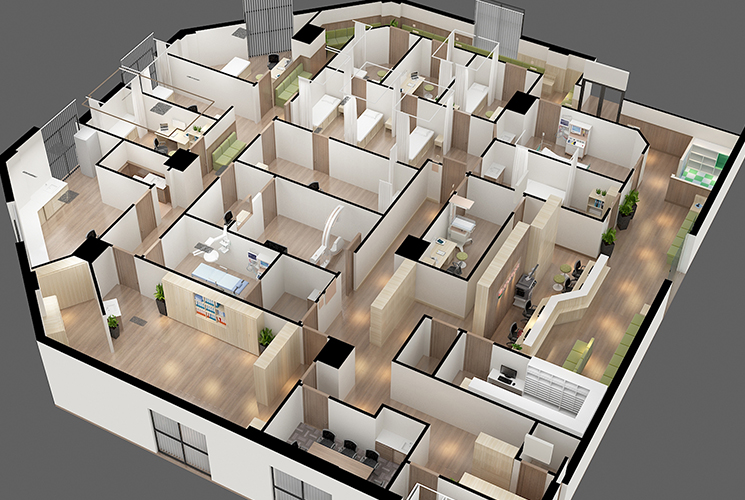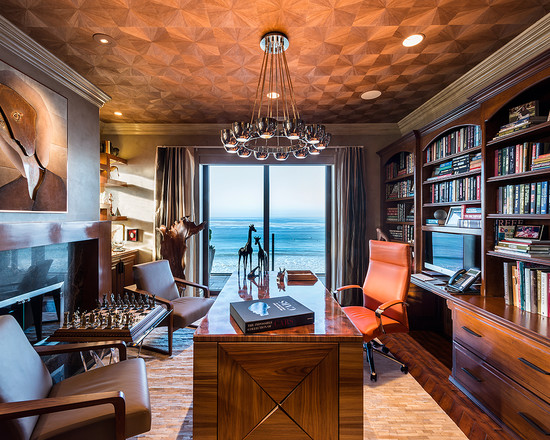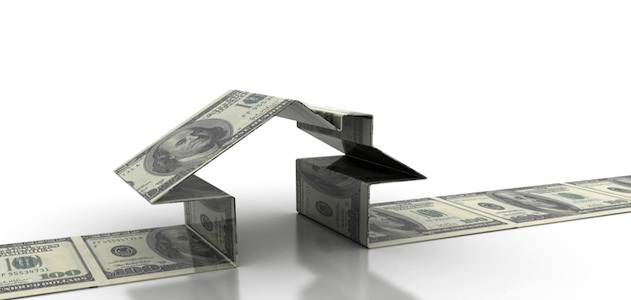Do It Yourself or Hire a Pro?
Once you’ve figured out what you want your home to look like, the big question is: Should you decorate it yourself or hire a professional? Or both?
Interior decorators and designers as we know them today barely existed before the 20th century. Before that it was taken for granted that you decorated your home yourself, unless you were Marie Antoinette or somebody with a similar pedigree. Old habits die hard. Some people still think you need to live in a palace to hire a decorator, or are fearful of the cost (whether real or perceived). For others it’s not so much a question of money, but of ceding control and having the concern that the results might not reflect their tastes. Some dive into the collaborative process without hesitation, while others have confidence in their tastes and skill and prefer to decorate their homes themselves. Which camp do you fall into?
Here are some things to think about to help you decide.
Advantages of Decorating Your Home Yourself
Obviously, decorating your home yourself means you won’t have to pay someone else to do it. The results will truly reflect your personal taste, and you’ll be able to take full credit for them. If you’ve gone through the process before and were pleased with the results, there’s no reason not to do it again.
Whether the DIY route will work for you will depend on your strengths. “If you know what you like and you know what makes you tick, you’ll love everything you choose,” says interior designer Alana Homesley of Woodland Hills, California. You can also do the project in stages, as funds allow, and you won’t face the challenge of trying to convey your likes and dislikes to a stranger.

Disadvantages of Decorating Your Home Yourself
You could mess up. And you’ll either need to live with that error for years to come or pay a large sum of money to make it go away. “Do you have the ability to visualize? Are you a creative type? If you’re not, then you need some help,” says Homesley, “because it is expensive, and you don’t want to make any mistakes.”
Advantages of Hiring an Interior Designer
Hiring an interior designer will give you access to a large selection of to-the-trade-only furnishings, fabrics and wall coverings that otherwise you’d probably never see, and the services of workrooms and tradespeople that the designer has cultivated relationships with over the years. You can potentially end up with a beautiful home tailored to your tastes and lifestyle, and furnished with pieces chosen by an expert for their beauty, quality and durability.

“If you have the budget, that’s the way you should go, because you’re going to have something custom to you,” says Homesley. “Having someone who can affirm your decisions is really positive,” says designer Amy Luff of Viva Luxe Studios in Bristol, Virginia. “Designers can save you money. And they can save you from repaying for something.”
Disadvantages of Hiring an Interior Designer
Working with an interior designer can be costly. It’s also a very intimate process. You will be sharing a lot of details of your life with another person. You might end up working together for months — maybe even years. A designer can become a confidant. Or, if you don’t pick the right one, an adversary. Just because someone was on a magazine cover, Luff observes, doesn’t mean he or she will be the right fit for your home. So it’s extremely important that you like and trust your designer, and most of all, communicate well with him or her. Be clear about your budget up front, with no apologies and no excuses.
 Don’t hire someone accustomed to $250,000 budgets and expect her to shop for you at T.J.Maxx. Conversely, don’t expect a lower-budget beginner to deliver results like Mario Buatta. Eclectic Living Room by Cynthia Lynn Photography Cynthia Lynn Photography SaveEmail There’s a sense of accomplishment that comes with decorating your home yourself that you might not feel if you pay someone to do the work for you. A good designer will involve you in the process, however, and make you feel like you played a major role in the outcome.
Don’t hire someone accustomed to $250,000 budgets and expect her to shop for you at T.J.Maxx. Conversely, don’t expect a lower-budget beginner to deliver results like Mario Buatta. Eclectic Living Room by Cynthia Lynn Photography Cynthia Lynn Photography SaveEmail There’s a sense of accomplishment that comes with decorating your home yourself that you might not feel if you pay someone to do the work for you. A good designer will involve you in the process, however, and make you feel like you played a major role in the outcome.
Interior decorators and designers as we know them today barely existed before the 20th century. Before that it was taken for granted that you decorated your home yourself, unless you were Marie Antoinette or somebody with a similar pedigree. Old habits die hard. Some people still think you need to live in a palace to hire a decorator, or are fearful of the cost (whether real or perceived). For others it’s not so much a question of money, but of ceding control and having the concern that the results might not reflect their tastes. Some dive into the collaborative process without hesitation, while others have confidence in their tastes and skill and prefer to decorate their homes themselves. Which camp do you fall into?
Here are some things to think about to help you decide.
Advantages of Decorating Your Home Yourself
Obviously, decorating your home yourself means you won’t have to pay someone else to do it. The results will truly reflect your personal taste, and you’ll be able to take full credit for them. If you’ve gone through the process before and were pleased with the results, there’s no reason not to do it again.
Whether the DIY route will work for you will depend on your strengths. “If you know what you like and you know what makes you tick, you’ll love everything you choose,” says interior designer Alana Homesley of Woodland Hills, California. You can also do the project in stages, as funds allow, and you won’t face the challenge of trying to convey your likes and dislikes to a stranger.

Disadvantages of Decorating Your Home Yourself
You could mess up. And you’ll either need to live with that error for years to come or pay a large sum of money to make it go away. “Do you have the ability to visualize? Are you a creative type? If you’re not, then you need some help,” says Homesley, “because it is expensive, and you don’t want to make any mistakes.”
Advantages of Hiring an Interior Designer
Hiring an interior designer will give you access to a large selection of to-the-trade-only furnishings, fabrics and wall coverings that otherwise you’d probably never see, and the services of workrooms and tradespeople that the designer has cultivated relationships with over the years. You can potentially end up with a beautiful home tailored to your tastes and lifestyle, and furnished with pieces chosen by an expert for their beauty, quality and durability.

“If you have the budget, that’s the way you should go, because you’re going to have something custom to you,” says Homesley. “Having someone who can affirm your decisions is really positive,” says designer Amy Luff of Viva Luxe Studios in Bristol, Virginia. “Designers can save you money. And they can save you from repaying for something.”
Disadvantages of Hiring an Interior Designer
Working with an interior designer can be costly. It’s also a very intimate process. You will be sharing a lot of details of your life with another person. You might end up working together for months — maybe even years. A designer can become a confidant. Or, if you don’t pick the right one, an adversary. Just because someone was on a magazine cover, Luff observes, doesn’t mean he or she will be the right fit for your home. So it’s extremely important that you like and trust your designer, and most of all, communicate well with him or her. Be clear about your budget up front, with no apologies and no excuses.




